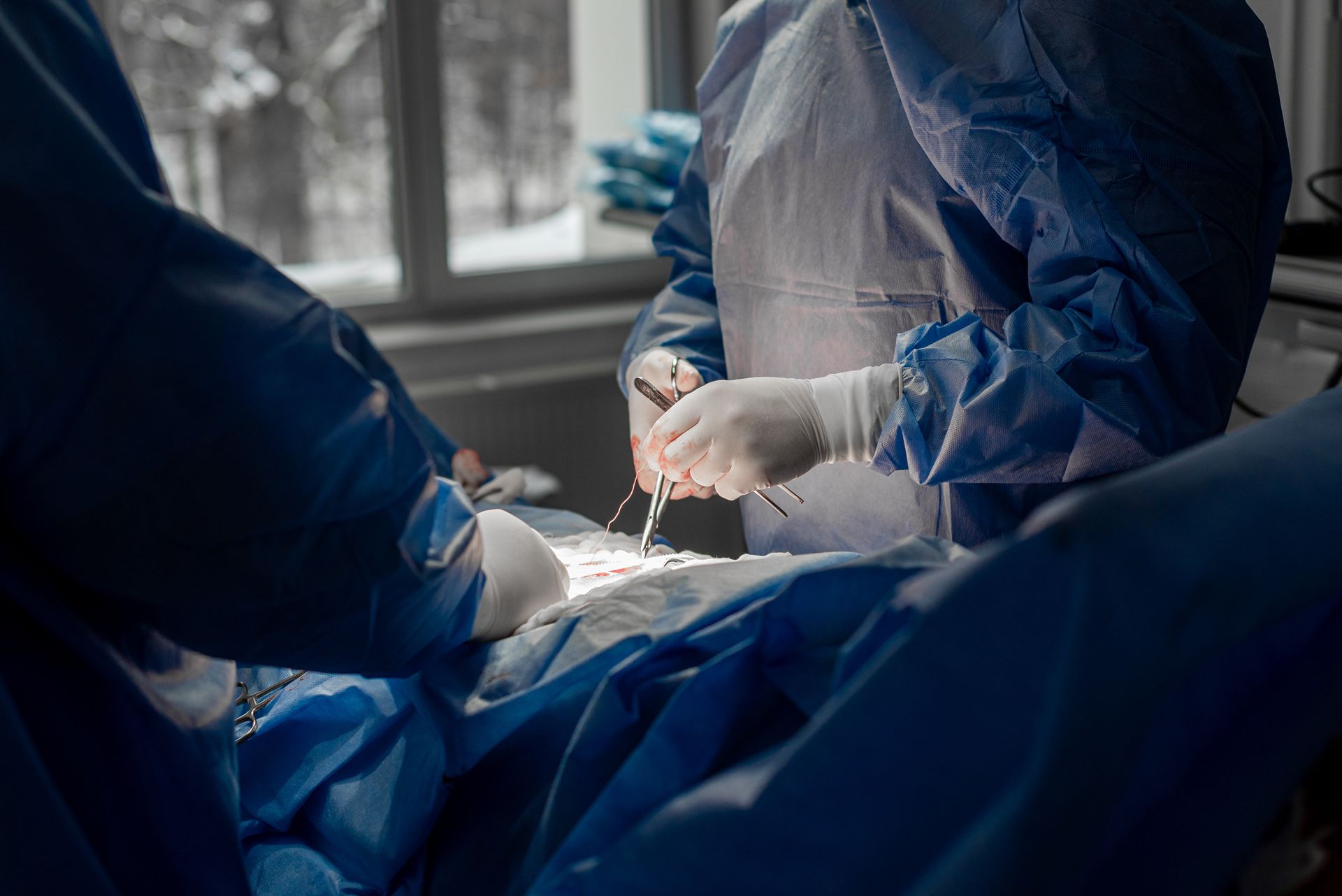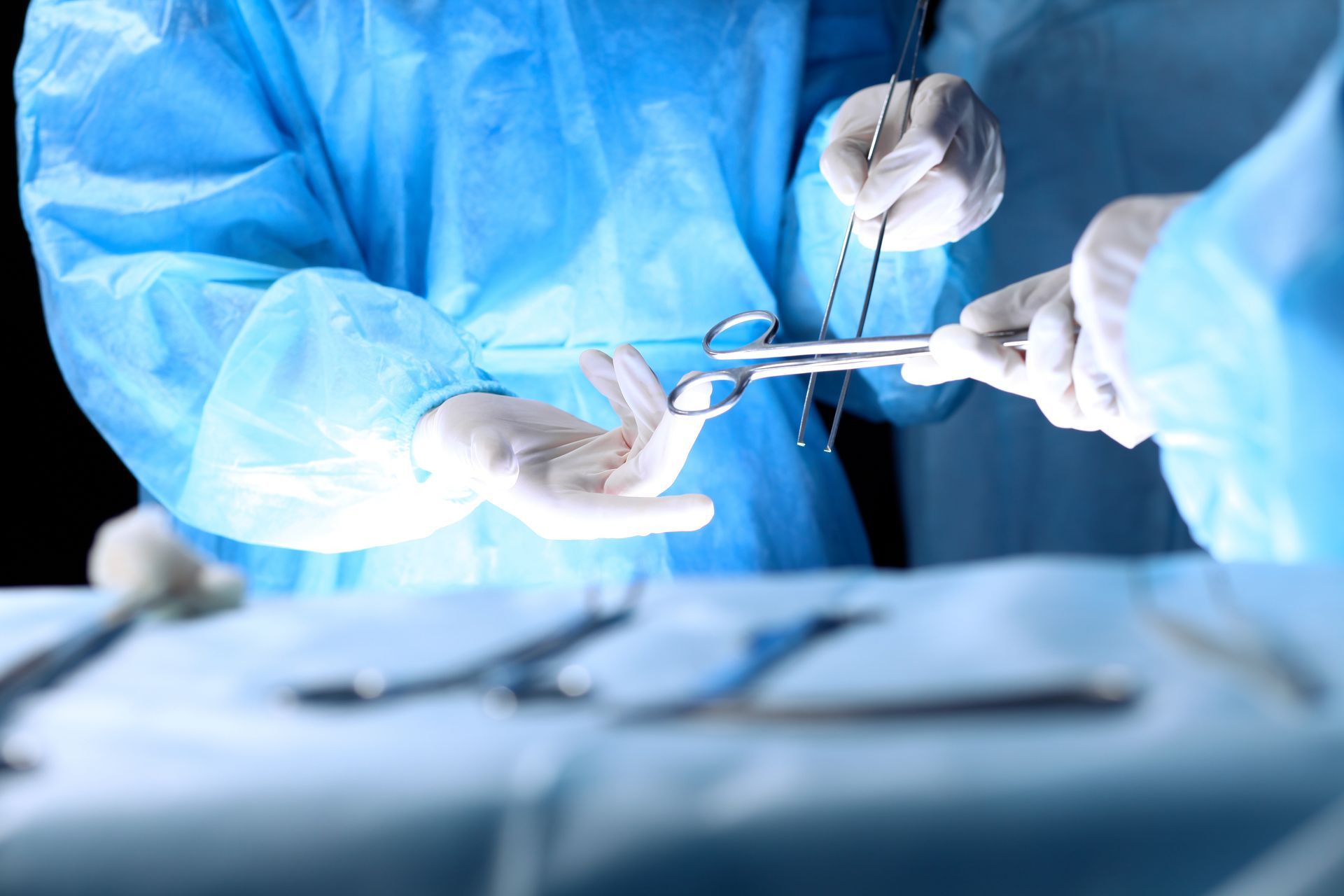Top Hernia Surgery Options At Copper Mountain Surgical

A hernia happens when a part of the body pushes through a weak spot in the muscles or tissue around it. This can create a noticeable bulge and may lead to discomfort or pain. Hernia repair surgery, specifically inguinal hernia repair, is a common way to fix this issue. Among the many types of hernias, inguinal hernias are the most common, especially in men.
Understanding Hernia: Types And Causes
A hernia happens when an organ or tissue pushes through a weak spot in the muscle or connective tissue around it. This creates a bulge. It can occur due to increased pressure in the abdominal cavity or a weak abdominal wall.
Many things can cause a hernia. Common reasons include straining when using the bathroom, lifting heavy items, frequent coughing, being pregnant, obesity, and even genetics. It's important to know the different types and causes of hernias to find the right treatment.
The Anatomy Of A Hernia: What Happens Inside Your Body?
Visualize your abdomen as a room with walls made of muscles and tissues. These walls keep your organs in place. Now, think about a weak spot or small opening in one of those walls. That is where a hernia can form. When there is more pressure inside your abdomen, like when you lift something heavy or cough hard, part of your intestine or other contents can push through that weak spot.
For example, let's look at inguinal hernia. This is one of the most common types. Here, the weak spot is in the groin area, where the inguinal canal is found. The inguinal canal serves as a passage for blood vessels and nerves. In men, it also carries the spermatic cord. If a hernia develops here, you might see a bulge in the groin or scrotum.
As the hernia grows, it can cause discomfort, pain, and even complications if not treated. That is why it's important to understand the anatomy of a hernia. This helps people see why they should seek timely medical help and explore treatment options.
Common Types Of Hernias Treated In Scottsdale And Phoenix
Scottsdale and Phoenix treat different types of hernias. Some of the most common ones include:
- Inguinal hernias: These hernias occur in the groin, where the abdomen and thigh meet. They are more common in men and can lead to a bulge in the scrotum.
- Umbilical hernias: These happen around the belly button and are often seen in babies or pregnant women, creating a noticeable bump.
- Hiatal hernias: These occur inside the body. Part of the stomach pushes up through an opening in the diaphragm, which can cause acid reflux and heartburn.
Treatment varies based on things like the type, size, and severity of the hernia. Options can include watchful waiting or surgery, with many doctors preferring minimally invasive methods.
Advances In Hernia Surgery: Exploring Your Options
Surgical methods for fixing hernias have improved a lot. We are moving from traditional open surgery to less invasive surgical options. These new methods have many benefits. They can lead to less pain, quicker recovery, and less scarring.
Now, patients can talk about different options with their surgeons. This includes laparoscopic and robotic surgeries. These improvements show a dedication to giving patients in Scottsdale and Phoenix the best treatment of hernias available.
The Evolution Of Hernia Repair: From Open Surgery To Robotics
Hernia repair has really changed over the years. Earlier, doctors used open surgery, which meant making a big cut to fix the hernia. This method worked, but it usually led to longer recovery times and more chances for problems.
Now, there is minimally invasive surgery, including laparoscopic hernia repair. This technique uses small cuts and special tools like a laparoscope. A laparoscope is a narrow tube with a camera that lets doctors see and fix the hernia from the inside. This type of surgery has many advantages over open surgery. It causes less pain, leaves smaller scars, and helps people get back to their normal lives faster.
Robotic hernia repair is an even better step in minimally invasive surgical repair. It uses advanced robotic systems that help surgeons do detailed work with more accuracy. The surgeon sits at a console while the robotic arms follow their movements to perform precise actions inside the body. This technology helps reduce damage to surrounding tissue, lowers pain after surgery, and allows patients to recover quicker.
Why Choose Minimally Invasive Surgery For Hernia Repair?
Minimally invasive hernia surgery Phoenix AZ is getting more popular, and there are good reasons for this. This modern method has many benefits compared to traditional open abdominal surgery. For many patients, it is a better choice.
One of the biggest benefits is that it uses small incisions. Open surgery needs a large cut to reach the hernia, but minimally invasive methods only require a few small cuts. This means patients have less pain, smaller scars, and a lower risk of infection. Many patients feel less discomfort after the surgery and can return to their normal activities much faster.
The shorter recovery time from minimally invasive hernia surgery is a big plus, especially for people with busy lives. Recovery can be different for each person and depends on the type of hernia. But generally, patients can get back to work, exercise, and other activities quicker with minimally invasive techniques compared to open hernia repair surgery.
Spotlight On Robotic Hernia Surgery At Copper Mountain Surgical
Copper Mountain Surgical leads in hernia care. They offer advanced treatments like robotic hernia surgery. This method is less invasive and improves accuracy and results for patients.
Copper Mountain Surgical teams skilled surgeons with the da Vinci robotic system. They are committed to providing the best care for those who need hernia repair.
How Robotic Surgery Transforms Hernia Repair
Robotic hernia repair, especially with the da Vinci Surgical System, has changed hernia surgery. This advanced technology helps surgeons, leading to better results for patients.
Surgeons use a console to control small instruments that are attached to robotic arms. These tiny instruments, with small cameras and surgical tools, go into the body through a few small incisions. The da Vinci system takes the surgeon’s hand movements and turns them into precise and real-time movements of the instruments. This gives great accuracy and control inside the body. Visit Robotic Hernia Surgery vs. Open Hernia Repair to learn more.
This kind of surgery causes less damage to nearby tissues, reduces blood loss, and improves the view of the surgical area. Because of this, patients usually feel less pain, have smaller scars, and recover faster compared to traditional open surgery.
Benefits Of Opting For Robotic Hernia Surgery
Patients choosing robotic hernia surgery Phoenix AZ enjoy many benefits, making it a great choice for hernia repair. One big benefit is the use of smaller incisions. This leads to less scarring and lower pain after surgery. Unlike traditional open surgery, which needs a large cut, robotic surgery uses a few tiny cuts. This means less impact on nearby tissues.
Another important benefit is the faster recovery time. Patients who have robotic hernia repair usually get back to their everyday activities faster than those who had open surgery. The less invasive method causes less harm to the body, helping it heal more quickly.
Lastly, robotic hernia repair has a lower risk of hernia recurrence. The robotic system gives surgeons precision and control to make a strong repair. This helps decrease the chances of the hernia coming back.
Preparing For Your Hernia Surgery: What You Need To Know
Getting ready for hernia surgery is very important. It helps the procedure go smoothly and makes recovery easier. Your doctor will give you clear instructions tailored to your needs and the type of surgery you will have.
Usually, this means you might need to fast for some time before the surgery. You may also have to stop taking certain medications for a while. It's important to make plans for your care after the surgery.
If you have any questions or worries, don't hesitate to talk to your healthcare team. They are there to help you and make sure you have all the information you need.
Steps To Take Before Your Hernia Surgery
You have decided to have hernia surgery. It’s normal to feel a mix of feelings—like excitement, relief, and maybe some concern. Your healthcare team is here to support you throughout this process.
Your journey starts with a consultation. A board-certified surgeon, who is an MD specializing in surgical procedures, will check your medical history and give you a physical exam. They may also request some tests. This consultation is very important. , especially if you are considering treatment options with specialists like Wesley High. It helps find the best surgical approach for your hernia type and your health.
Before your surgery, you will get detailed instructions. These may include when to stop eating and drinking, how to change your medications, and who will drive you home after the procedure. You will likely be given general anesthesia for your hernia repair. This means you will be comfortably asleep during the surgery. Your medical team will talk with you about everything related to the anesthesia to put your mind at ease.
Understanding The Recovery Process After Hernia Surgery
Recovery after hernia surgery is different for everyone. It depends on the type of hernia, its size, your health, and how the surgery was done. However, there are some things that are commonly true.
Your medical team will give you clear instructions. These will include how to care for your incision, manage pain, and slowly get back to your normal activities. It's very important to follow these instructions closely. Doing so helps you heal better and reduces the chance of complications. While serious complications are rare, they can include infection, bleeding, or a recurrence of the hernia.
You might feel chronic pain after any surgery, though it's less common with minimally invasive techniques. If you feel pain or discomfort, contact your surgeon. They are there to help you and make sure your recovery goes as smoothly as possible.
Conclusion
If you live in the Scottsdale or Phoenix area and need hernia surgery, Copper Mountain Surgical has advanced robotic techniques for less invasive procedures. Knowing about hernias and the benefits of robotic surgery can help you choose wisely. Copper Mountain Surgical focuses on patient care and uses new technology to create treatment plans just for you. If you want to learn more about advanced hernia surgery options,
contact Copper Mountain Surgical for expert help and caring support.




